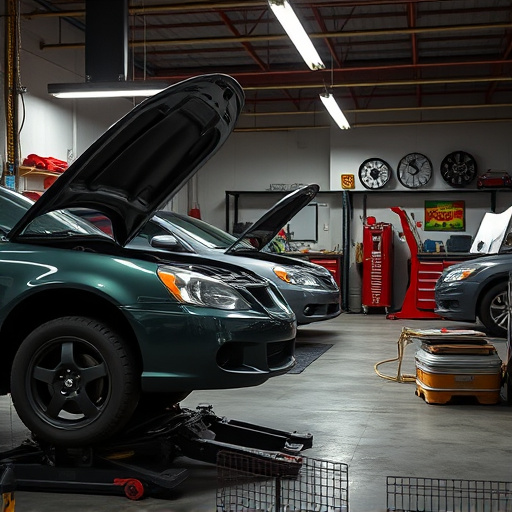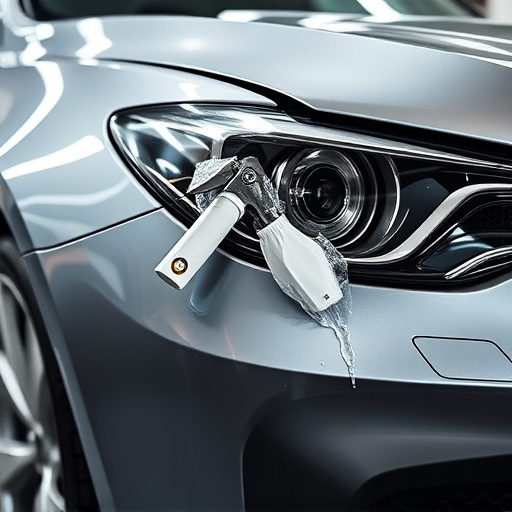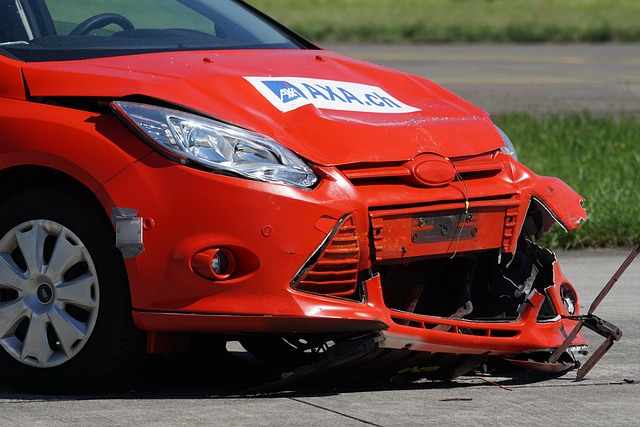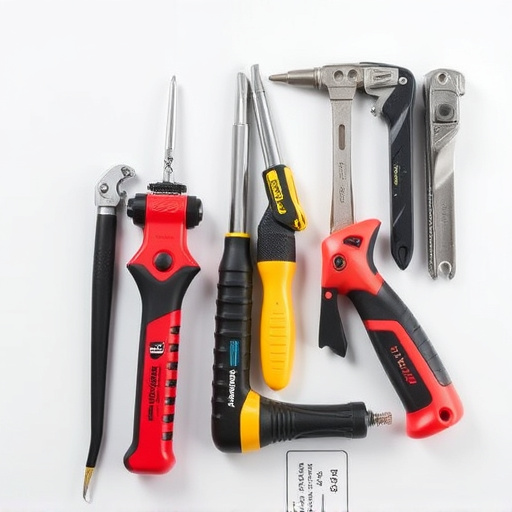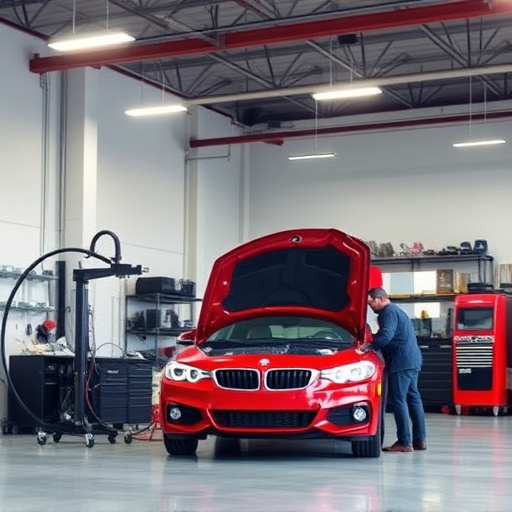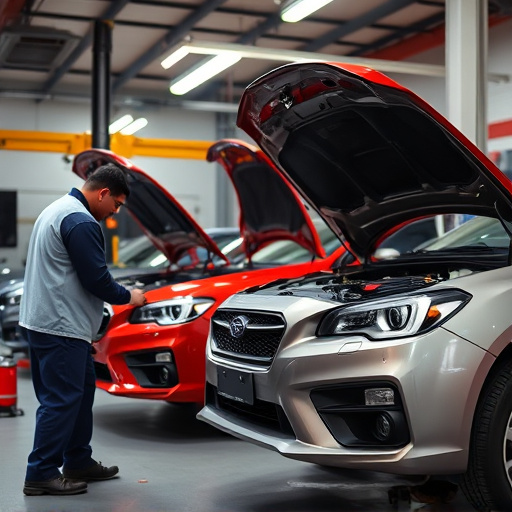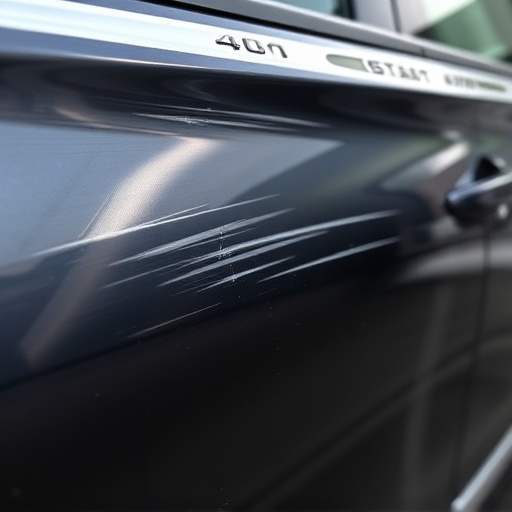Insurance companies facilitate quality and cost-effective auto repairs by recommending trusted repair facilities that meet stringent criteria, including technical expertise, genuine parts usage, safety standards, and fair pricing. These recommended repairs provide peace of mind and ensure vehicles are restored to pre-accident condition, with certified centers adhering to industry best practices and maintaining up-to-date knowledge through ongoing training and examinations.
In today’s digital era, understanding who approves insurance recommended auto repair facilities is paramount for consumers. Insurance companies play a crucial role in selecting these facilities, ensuring quality repairs that protect both vehicles and wallets. This article delves into the process, highlighting key aspects such as consumer protection, certification, and accreditations for auto repairs. By exploring these elements, we empower folks to make informed choices when it comes to insurance recommended repair options.
- Insurance Companies: Selecting Repair Facilities
- Consumer Protection: Ensuring Quality Repairs
- Certification and Accreditations for Auto Repairs
Insurance Companies: Selecting Repair Facilities
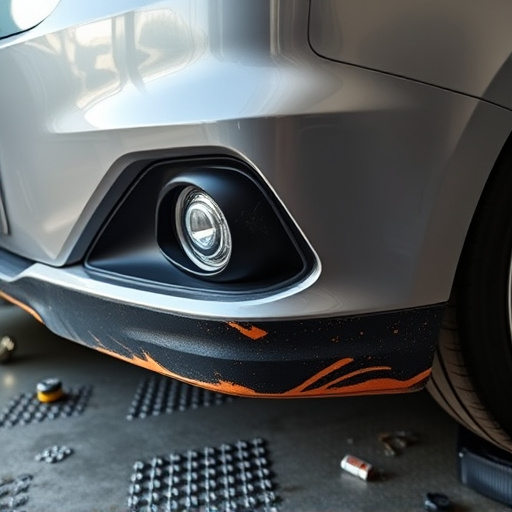
Insurance companies play a pivotal role in approving and recommending auto repair facilities to their policyholders. When an insured driver is involved in an accident, their insurance provider offers a network of trusted repair shops where they can take their vehicle for damage assessment and subsequent repairs. This process ensures that policyholders receive quality service while also maintaining the financial protection offered by their insurance policies.
Selecting reputable repair facilities is crucial for several reasons. Insurance companies aim to provide efficient and cost-effective solutions, ensuring that repairs are carried out correctly and within the scope of the policy coverage. Therefore, they carefully vet and approve facilities based on criteria such as technical expertise, use of genuine parts, adherence to safety standards, and fair pricing. This selection process guarantees that insured individuals can avail themselves of reliable auto painting, dent repair, and car bodywork services when needed, promoting peace of mind and ensuring their vehicles are restored to pre-accident condition.
Consumer Protection: Ensuring Quality Repairs
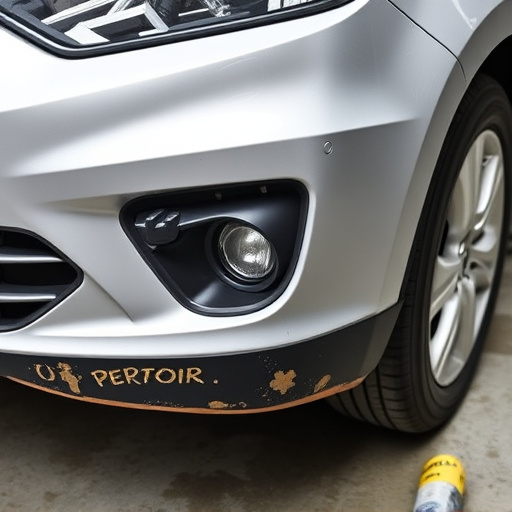
Consumer Protection plays a vital role in ensuring that drivers receive quality auto body repairs when utilizing insurance-recommended repair facilities. These centers are often rigorously vetted by insurance companies to meet specific standards, providing assurance that the repairs will be done competently and efficiently. This protection is crucial, especially considering the complexity of modern vehicle mechanics and the potential for costly mistakes during auto body repairs.
When an insured driver needs collision repair or car body restoration, they are often directed towards these approved facilities. Insurance companies carefully evaluate each center based on factors like staff training, equipment quality, and adherence to industry best practices. This process helps maintain a high level of consumer satisfaction, ensuring that vehicle owners receive repairs that not only restore their cars to pre-accident condition but also safeguard their safety on the road.
Certification and Accreditations for Auto Repairs

In the world of insurance recommended auto repairs, certification and accreditations play a crucial role in ensuring quality service. Reputable auto repair facilities seek recognition from various national and international bodies that set standards for automotive expertise. These certifications verify the facility’s competence in handling a wide range of car damage repairs, including complex auto body repairs and even intricate car dent repair work. By obtaining these credentials, a shop demonstrates its commitment to providing reliable and safe repairs, which is essential for maintaining customer satisfaction and ensuring peace of mind.
The process involves rigorous training, examinations, and ongoing education to stay updated with the latest industry trends and technologies in auto body repairs. As previously mentioned, certifications ensure that the repair facility adheres to specific standards, covering everything from straightforward car damage repair to specialized services. This commitment to excellence is a significant factor when insurance companies recommend repair facilities to their policyholders, fostering trust and confidence in the recommended shops’ capabilities.
In summary, the approval of insurance-recommended auto repair facilities is a multifaceted process involving insurance companies, consumer protection agencies, and specialized certification bodies. Insurance companies play a pivotal role in selecting repair facilities based on quality, efficiency, and cost, while consumer protection ensures that these facilities deliver reliable and safe repairs. Certification and accreditations further validate the competence and reliability of auto repair shops, ultimately benefiting both insurers and policyholders by fostering a network of trusted, insurance-recommended repair centers.

